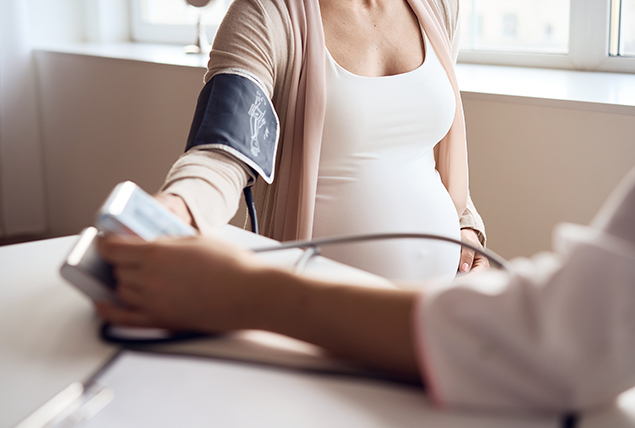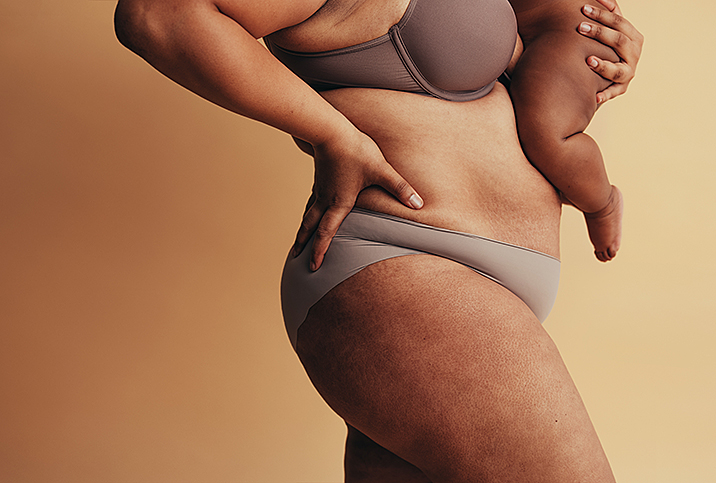Preeclampsia Raises Heart Attack and Stroke Risk

Preeclampsia, a little-understood pregnancy complication, results in more than 70,000 maternal and 500,000 fetal deaths each year worldwide. The condition is characterized by perilously high blood pressure and excess protein in the urine. Preeclampsia can interfere with the blood flow to the placenta and the fetus, and cause dangerous complications for the mother and fetus.
For many years, the prevailing belief held that the only "cure" for preeclampsia was delivery. However, mounting research confirms that for many people, the condition may carry serious consequences long after a mother checks out of the maternity ward.
For example: It's well established that people who experience preeclampsia have four times the risk of high blood pressure, and double the risk for heart disease and stroke in their lifetime.
Now, new research from the University of Copenhagen in Denmark has found women with a history of preeclampsia have a higher likelihood of heart attack and stroke than their peers within just seven years of delivery, with risks remaining elevated more than 20 years later.
"The high risk of cardiovascular disease after preeclampsia manifests at young ages and early after delivery," said study author Sara Hallum, a doctoral student and epidemiologist at the University of Copenhagen, in a Science Daily report. "This indicates that interventions to prevent heart attacks and strokes in affected women cannot wait until middle age when they become eligible for conventional cardiovascular screening programs."
About the study
For the study, Hallum and her fellow researchers pulled registry data on more than 1.15 million pregnant people in Denmark between 1978 and 2017. The research team followed participants with and without preeclampsia—all of whom experienced no cardiovascular diseases during pregnancy—for up to 39 years after giving birth.
They found people who had preeclampsia were four times more likely to have a heart attack and three times more likely to have a stroke within 10 years of delivery. Twenty years after giving birth, the risk of heart attack and stroke remained high, occurring at twice as high a rate in people with preeclampsia.
In addition, the research team found people between the ages of 30 and 39 who had preeclampsia had a five times higher risk of heart attack and a three times higher risk of stroke. Meanwhile, people older than 50 who had preeclampsia had double the risk of heart attack or stroke.
"Women are often in contact with the healthcare system during and immediately after pregnancy, providing a window of opportunity to identify those at increased risk of cardiovascular disease," Hallum said in the report. "The number of women with previous preeclampsia is large, and routine follow-up could last years or even decades. Our study suggests that the women most likely to benefit from screening are those who had preeclampsia after age 35 and those who had it more than once. Prevention should start within a decade of delivery."
How to reduce cardiovascular risks after preeclampsia
To cut the risk of heart problems and stroke after preeclampsia, people have options, according to Judette Louis, M.D., chair of the OB-GYN department at the University of South Florida and a specialist in maternal-fetal medicine.
"The first step is just to know that there's an increased risk," Louis said.
"If you had preeclampsia during pregnancy, be sure to cut out what we call 'modifiable risk factors,' or behaviors that put you at even higher risk for heart disease," she continued. "If you smoke, stop smoking, try to maintain a healthy body weight, try to exercise, emphasize a diet and healthy foods.
"All of the behaviors that help prevent heart disease are really important for people who've had preeclampsia," she said.
Reducing your overall risk of preeclampsia
Little is understood about what causes preeclampsia, Louis said.
"It's sad that we've been studying preeclampsia for so long and we still don't know what causes it," Louis said. "We know there are certain people who are at higher risk for developing it."
High-risk groups include first-time moms, people who are older—"What we call advanced maternal age," she said—those with conditions such as diabetes or kidney disease, and people with preexisting high blood pressure.
"We also know it can run in families," she added.
Although there is currently no sure way to prevent preeclampsia, Louis said taking low-dose "baby" aspirin has been shown to help reduce your chances of developing preeclampsia.
Lifestyle changes can also help.
"Before getting pregnant, try and maintain a normal body mass index," Louis said. "Before and during pregnancy, following healthy habits, such as getting regular exercise and rest, can minimize your risk."


















